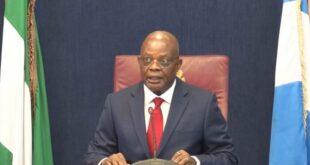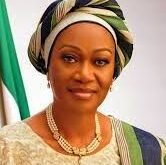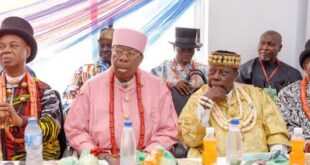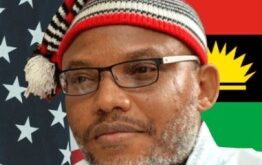
The year 2019 is an epochal one in the annals of Nigeria’s political history, it is so because, the general election is fixed for the first quarter during which; the term of the All Progressive Congress (APC) as the ruling party would either be affirmed for a second term or be jettisoned by voters in preference for another party.
Herein lays the anxieties and hopes of Nigerians for a government that would provide germane socioeconomic environment for the gestation of entrepreneurial and human capital development, which of course is the basis for collective aspiration as a people.
Fundamentally, the last four years of governance in the country has been a mixed bag of incoherent policy articulation both at all spheres of the structure of the Nigerian state. It is not discernable whether as a country, the philosophy of our economic, political and social existence is anchored on some feudal economic, political or social system or a modern one based on communist, socialist or capitalist mode.
The question has not been the lack of core knowledge in the feudal, communist, socialist or capitalist mode of governance; I bet if a search warrant is to be obtained for the search of households in Nigeria, a surprise find would be volumes of certificates, the inanes, mundane, spiritual and academia that would envy countries like Afghanistan, Syria, Libya, Rwanda, Burundi and Zimbabwe. There is no excuse for a nation that pride itself in the quest for certificates to be in want of how best to lead the hoi polloi to the Eldorado we seek.
There is no need being proud of laurels when in honesty, the recipients cannot deliver efficiently the obligations the laurels are expected to yield for himself, his immediate family and the society at large. The foundations of great countries like the European Union, Americas, China and Japan even urbane countries like North Korea, Taiwan and Pakistan were laid by entrepreneurs whose chest of credentials were as bare as Niger, Mauritian, South Sudan and Eritrea.
Perhaps, it is in this regards that going into the 2019 general election, the drum beat has been in the quest of how best to restructure the country to efficiently deliver public good for the people. There are many dancers that have responded to the drum beat to which there is consternation that many of the dancers are out in the hot sun dancing to the beat only themselves could understand. Other dancers are dancing in the tick of the night; such that, dark angels are ashamed to identify with them. The rest like me are poor dancers ashamed to take a step lets the drummers are frightened off.
Conceptually, since 1884, the area now called Nigeria was structured from loose autonomous communities into a British dominion. The argument has been no one consulted these loose autonomous communities before being coalesce into one Nigeria. The loose autonomous communities would have God willing transformed to heights unimaginable if they were left alone. Even today, problems of inter and intra communal ethno religious crises in Nigeria are claimed to be traceable to the so called Berlin Conference. Those who hold these view and I don’t begrudge them are the dancers in the sun as the restructure drums beats.
Talking restructure to the pre-1884 believers such as the Odua People’s Congress (OPC), Arewa Consultative Assembly, Movement for the Emancipation of the Niger Delta MEND, Ijaw National Congress (INC) Movement for the Survival of the Ogoni People (MASOP), Movement for the Actualization of the Sovereign State of Biafra (MASSOB) as well as other arcane groups too inauspicious to mention means the return to pre-1884 societies. How well, this would work in the 21st century remains to be seen.
Much as this is, the vote for 2019 would win acceptance if there is a promise to assuage the thinking of these groups. The surprise would be that even in these enclaves, they shall find the Egbalands, Ikwerres, Andonis, Ezza, Ijebus and the atakataelos dissenting, claiming otherwise.
Nonetheless, before 1884, loose autonomous communities in Africa and somewhere else lived in inertia holding tight to their forefather’s ways of life. The thinking of doing away with ‘detrimental practices’ that draws the society back is anathema to their culture and so must be resisted. In the world of reality, nature abhors inertia and encourages occupation. Nature also promotes colonization; which explains the push for colonization of Europe by the Arabian kings, and Asia, by the Mongolians and other places.
Thus the 1884 partition of Africa that brought loose autonomous communities in the area now called Nigeria together was a natural response to inertia that enveloped African societies. You may like it or may not, nonetheless, you are free to dance in the sun but don’t look for applause and don’t ask me why?
Critical to restructuring is that there has to be a structure to be restructured; which was why the government of Lord Lugard restructured the structure provided by the impetus of 1884 Berlin Ordinance by bringing together the Lagos Colony, the north and southern protectorates of Nigeria into one in 1914. Since then, the internal configuration of the country into regions and latter states has been to strengthen the structure bequeathed to the British Empire by the 1884 Berlin Ordinance
The question is why was there a need to restructure the colonies of the British Empire universally? The answer lies in the universality of one world view held by proponents of the world as a global village which needs to be opened for all to access in the 18th century.
Philosophers and thinkers alike looked at the world as that, which all people have a joint inheritance to propagate together as one. Leaving societies to do their own thing their own way may bring the world down than growth hence the great exploration renaissance of the earlier centuries.
Like in all propagation of awakening, individuals hardly find the oneness of purpose to act as one, which was why, Britain saw the spread of the new hope across the world in the culture of the British; by enforcing the adoption of the British way of life in areas of their control; so too, with the French and their policy of assimilation and the likes of Spain, Portugal and Italy. Had there been oneness of purpose in the spread of the new awakening of spreading the light, apostles of enlightenments would have chosen a language and the best way of social behavior to be propagated.
Just as sovereigns across Europe couldn’t agree to what the central world view should be, so too were the individuals, reformists, churches, capitalists, socialists, communist and the likes in Europe when the journey of light commence in the 19th century. This explains why today we have the Calvinists, Methodists, Catholics, Anglicans, Presbyterians and industrialists in a mixed bag of capitalism, socialism and communism.
There are others on the pendulum that could be described as left, center and right or far to the left, or far to the right, middle of the left or middle of the right and a little to the left and a little to the right as in Nigeria, which of course means neither here nor there.
Apostles of restructuring in Nigeria would be dancing in the tick of the night if they think that there would be oneness of purpose in the propagation of what better structure should fit the Nigerian system. One, Nigeria as a structure is an uneven geopolitical set up: the north is too large. The middle is to narrow, the west is oblong, the east small and the south diagonal. Trying to put a square peg in a round hole would not fit. So too with trying to put a round peg in a square hole would not fit.
Two, Nigerians think more in ethnic concentric than in the reality of purpose with some dialectic linguistic groups disclaiming themselves as being one even when their traditions shows otherwise. There have been wolf cries between ethnic groups in the South-South and the South-East whether there are Igbos or Ibibios or whether there are Ijaws or not. Both weave persuasive arguments for or against. And both can win a point.
Take for example in the attempt to restructure the present states structure in the country. The first salvo would be all the zones must have equal number of states for the zones to be equitable even as size is essential in equitability. The southeast stands out as in disfavor with five states when other zones have six. So what should be done in the face of the fact that there are constrained by differential geographical scale. Proponents of equitability are shopping across the Niger to the west of the southeast for the creation of a state that would bring the east central ethnic groups together.
These proponents are dancers in the tick of the night and dark angels are ashamed that they are succeeding. If they are guided by history, they would have seen that Ogoja province the only province from the colonial era that has been passed over in all restructuring exercises in the country is the sixth Southeast state that has been left out!
Prior to the jaundiced state creation exercise in the country, Ogoja was a broad inclusive region that incorporated what is now Ebonyi State and parts of Abia State. Muting this reality to the Ogojas would be suicide even as thinking this way would bring the best result in their aspiration for a state of their own! There is an opening there to canvass for Ogoja State in the South-East than a seventh state in the South-South. But survivor fears on both the Southeast and the South-South would not accept this fact even if swords are drawn.
You see why I said some of us dancers are afraid to take the step lets we panic the drummers to scamper to safety? There would be trepidation in Ogoja if this idea is brought to the front burner because of ethnic reasons. They would think such eventide would emasculate them economically, socially and politically, so too their fellow proponents in the Southeast who would see the infusion of the Ogojas in no palatable light.
But the fears are needless if fiscal federalism and devolution of powers based on the rule of law that would enhance practical applicability of the judicial process is enthroned in the country. Fear therefore is the problem behind the country’s inability to successfully do the needful to foot forward the administrative structures in the country. Fear is irrestructurable.
Fear is behind calls for the snubbing of local government as the third tier of government in the country. Fear is behind the call to restructure our electoral process to make the institution responsive, responsible and reliable in choosing leaders that would formulate a national view that would coagulate all shades of colours in the country’s ethnic configuration into one viable society prepared to add value to the world view of universality of one world one people. Fear is behind the call by Rochas Okorocha, governor of Imo State for the delineation of wards as fourth tier of government because the restructuring of the state’s autonomous communities is diverging to family setting than hoped for.
Questions may be asked: where lies the problem? Can the Nigerian mind be restructured? Can the thinking mentality of the people be restructured to create a utilitarian and egalitarian society in Nigeria? Is it possible to restructure the irrestructurable?
In proffering an answer to the question where lies the problem, it would suffice to say the problem lies in the mind: the thinking repository organ of Nigerians. Most Nigerians think in ethnic coloration than national sentiments. Even in communities that are near homogenous, the thinking therein has been narrowed to what is called autonomous communities or ruling houses. These exert energies looking for flaws in family lines and fanned same as ethnic interests which latter play out as national issues. The wars are unnecessary if this country must restructure.
Can the Nigerian mind be restructured? No and Yes. No in the sense that since the foundation of this country, Nigerians have been conditioned to think the way we do now and we have come to believe that the way we think is the appropriate default way to see things. There are too many invisible walls created in our minds that ourselves’ inflicted sores may never heal properly. We may try for a while but we would easily return to the default mode we have been conditioned to think.
Yes, in the sense that the human mind is created to be amendable to suggestion. Authoritarian societies like Russia, Iran, North Korea and China that have recognized how to manipulate the human mind through suggestions to achieve national development are good examples. These have been able to forge a coherent development plan for their nations and Nigeria can do likewise, through a concerted national orientation policy that brings together the flaws and good points in its ethnic configuration.
The present national orientation agency is a good platform to start with. But if the truth must be told, the agency has been left ineffective because of the formulation of conflicting institutions and institutionalization of policies anathema to the philosophy of national orientation. A few examples are the Federal Character Commission, the quota system in recruitments, political placements and allocation of power and finance based on local governments just to mention but a few. These institution works in counter clockwise to national orientation.
If we are to restructure the Nigerian mind, we must promote the best in the worst of Nigerians and not the destruction of the worst in Nigerians just because the worst is the worst for the worst’s sake. The notion that if we allow the worst with the best ideas to subsist, our comfort zone would be threaten and hence the shoot him down syndrome we see in political parties in the country would only lead to conflagrations that would not help the country’s best interest.
To recondition the Nigerian mind, we need a mental revolution in the likes of the old Soviet Union or the type associated with Japan after their defeat in the Second World War. This type of revolution would first rejuvenate the mind and purge it through a systematic reprogramming of ethnic, religious and fanatical thoughts and replace same with nationalistic pride and industry. Anything less, would not get us there.
It is possible to restructure Nigeria to create a utilitarian and egalitarian society. In truth to achieve this is harder in practice than in words; nonetheless, it is better to attempt than not. If we are to attempt a renaissance, the country must adopt a national philosophy in which all Nigerians must key into. Former Military President, Ibrahim Babangida in the aborted third republic, gave the country a template to start with: a little to the left and a little to the right. What this means is that the Nigerian philosophy of development should be guided with moderation if the choice should be socialism, capitalism or communism.
Be that as it may, nothing stops eggs heads in the country to format a new philosophy outside the known ones mentioned above for the construct of a utilitarian and egalitarian society.
Finally, it is possible to restructure the Nigerian structure because of the powers nature has endowed the human mind. Once the mind conceives it, it is possible to attain any height. The National Space Agency, (NASA) has shown that with the first unmanned space craft launched in 2006 reaching far flung region of space – the asteroid belt where the Great Thule is located.
Is the 2019 General Election the stage in which this country would seized to launch the great restructuring we have been clamoring for? The answer lies in your vote.
 PH Mundial – Port Harcourt Online Newspaper News Across The Region
PH Mundial – Port Harcourt Online Newspaper News Across The Region




